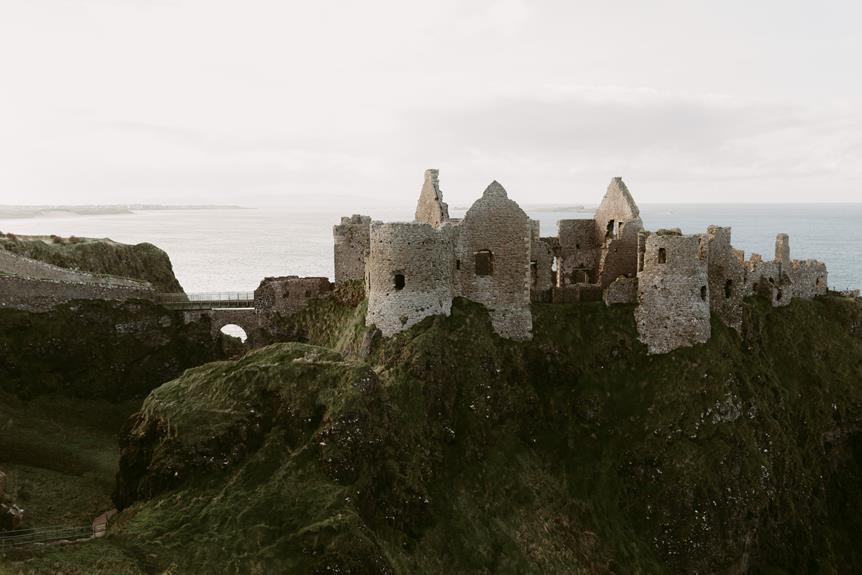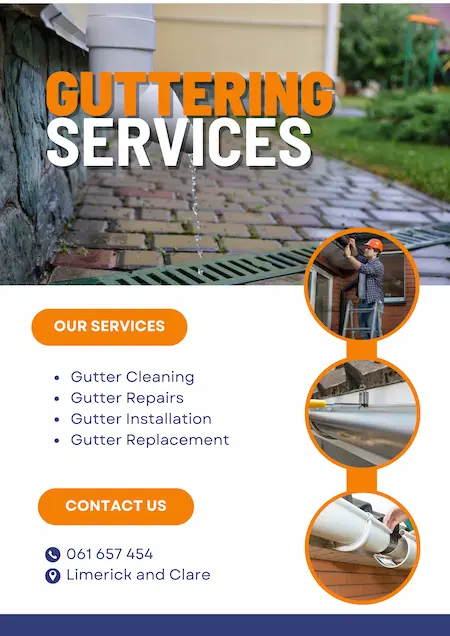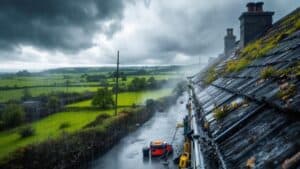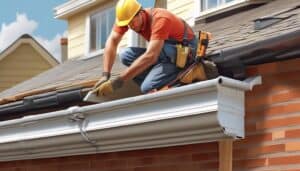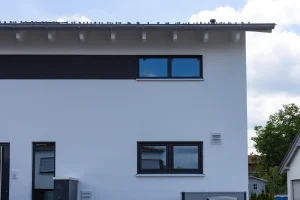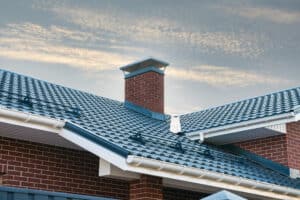An effective way to conserve water in Ireland is by reducing leaks and using water-efficient appliances and practices. Installing low-flow showerheads and dual-flush toilets can significantly reduce water consumption.
Additionally, addressing leaks promptly, educating household members on sustainable water practices, and conducting a water audit to identify areas for improvement can further enhance water-saving efforts.
Key Takeaways
- Install water-efficient appliances like low-flow showerheads to reduce water usage.
- Collect and use rainwater for outdoor activities to save potable water.
- Repair leaky faucets and toilets to prevent unnecessary water wastage.
- Educate household members on water conservation to promote sustainable habits.
- Use dishwashers and washing machines only with full loads to maximize water efficiency.
What Is Water Conservation?
Water conservation is the practice of using water efficiently to reduce waste and preserve freshwater resources. Water conservation includes implementing water-saving devices, promptly fixing leaks, and using water-efficient appliances like water-efficient taps, showerheads, and dishwashers.
Additionally, it requires adopting conscientious water practices such as turning off taps when not in use and opting for shorter showers. Public awareness campaigns and educational programs help raise awareness about individual water usage habits and contribute to a culture of water conservation.
In Ireland, water conservation is crucial as it safeguards the future water supply, ensuring that this essential resource remains available for all. Preserving freshwater resources is vital for the well-being of all living organisms.
By adopting water-efficient practices and promoting sustainable living, Ireland can make significant strides in conserving its valuable water resources. Effective water conservation depends on a collective effort involving governments, local authorities, industries, the agricultural sector, and homeowners.
How Do We Conserve Water in Our Daily Life?
Water conservation is crucial in our daily lives, and it can be achieved by adopting simple habits and making mindful choices. To start with, upgrading to water-efficient appliances is highly effective. For example, installing low-flow showerheads can save up to 10 litres of water per minute during showers, which adds up to significant savings over time. The EPA recommends using water-efficient appliances such as washing machines and dishwashers, which are designed to use less water without compromising performance.
Promptly addressing leaks is essential. A dripping faucet may seem trivial, but it can waste up to 11,000 litres of water annually if left unchecked. Maintaining appliances and pipes helps ensure that water is not wasted unnecessarily and prevents potential damage to property.
Daily habits also play a significant role. Turning off the tap while brushing your teeth can save around 6 litres of water per minute. Similarly, using a basin to wash fruits and vegetables instead of running water can conserve a substantial amount of water, making this a practical and effective practice in the kitchen.
What Are Simple Ways to Conserve Water in Ireland?
Simple ways to conserve water in Ireland include:
- Upgrade to water-efficient appliances: Install low-flow showerheads, dual-flush toilets, and water-saving dishwashers to reduce household water usage.
- Implement rainwater harvesting systems: Collect rainwater for non-potable activities like watering gardens or washing cars, reducing pressure on public water supplies.
- Encourage shorter showers: Promote shorter showers to save water over time.
- Fix leaks promptly: Address even small water leaks quickly to avoid wasting water.
- Educate on sustainable water practices: Teach both children and adults the importance of water conservation to foster a sustainable culture.
- Use greywater systems: Implement systems that recycle water from sinks, showers, and washing machines for non-potable purposes, reducing the demand for freshwater resources.
How to Make a Water Conservation Plan?
To make a water conservation plan, follow these steps:
-
Set Goals: Identify clear, measurable objectives for reducing water usage. For example, aim to reduce household water usage by 20% within a year.
-
Conduct Audit: Review water bills and monitor daily consumption patterns to establish a baseline of current water usage.
-
Identify Savings Areas: Identify areas where water can be conserved, such as upgrading to water-efficient appliances like low-flow taps, toilets, and showerheads. These changes can reduce household water usage by up to 30%.
-
Engage Household Members: Educate family members about the importance of water conservation and encourage water-saving habits like shorter showers and turning off taps while brushing teeth.
-
Monitor Progress: Regularly check water bills and use water meters to track progress and detect leaks and inefficiencies promptly.
-
Implement Rainwater Harvesting: Collect and store rainwater for non-potable uses, such as garden irrigation and toilet flushing, to reduce dependency on the main water supply.
Frequently Asked Questions
What Are the 5 R’s of Water Conservation?
The five key principles are often referred to as the 5 R’s. They are: Reduce, Reuse, Recycle, Restore, and Respect. Here’s the breakdown of how we can conserve water effectively.
First off, we aim to use less water in our daily routines, like cutting down on shower time and being mindful of dripping taps.
Next up, we focus on reusing water. Ever heard of greywater or rainwater harvesting? It’s all about finding smart ways to repurpose water.
Then, there’s the crucial step of recycling water. It’s not just about plastics; it’s about setting up systems to safely reuse water.
After that, we move on to restoration. This means backing projects that help restore natural water sources such as rivers and wetlands.
And last but definitely not least, we need to show respect for water. It’s not an infinite resource, so we must cherish and handle it with care.
Water conservation isn’t merely a trend; it’s a vital aspect of sustainable living. Let’s each play our part in safeguarding this invaluable resource.
What Are the Strategies for Water Conservation?
If we want to safeguard our water resources, there are some easy steps we can follow. One way is to choose appliances that are built to save water. You might think about fitting a water-efficient showerhead or waiting until your washing machine is full before running a cycle.
These simple adjustments can significantly reduce our daily water consumption. Another excellent strategy is collecting rainwater, which not only conserves water but also taps into a natural resource. By adopting these practices, we each contribute to water conservation efforts.
